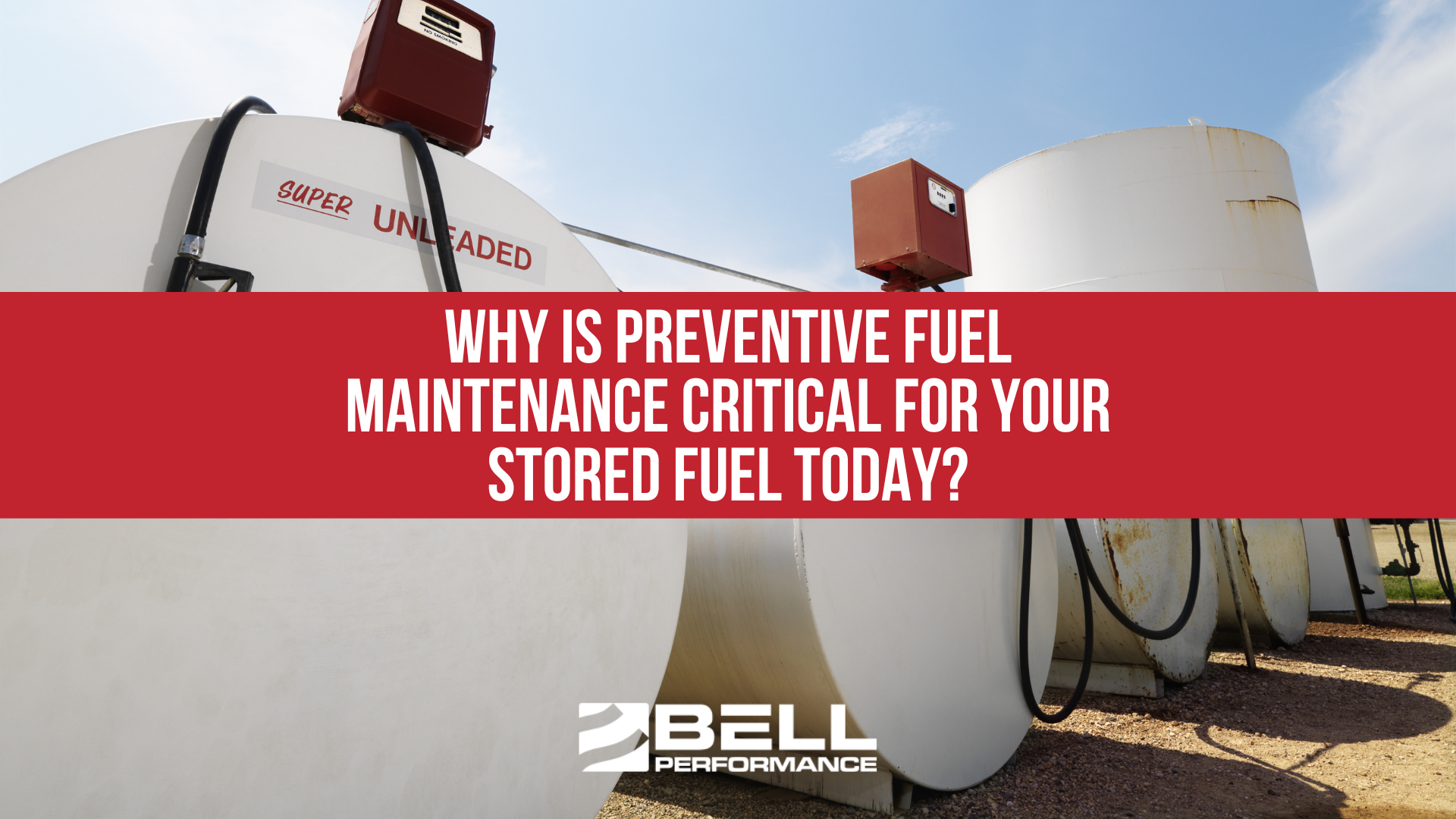Why Is Preventive Fuel Maintenance Critical for Your Stored Fuel Today?
The concept of preventive maintenance isn't new—we see it everywhere in our daily lives. You change your car's oil before it breaks down. You...

If you manage a business or administer a budget for a government agency on the state or local level, how much is your fuel budget? Do you ever have money left over at the end of the fiscal year? Or do you find yourself playing the budgetary shell game because you need to rob Peter to pay for Paul’s fuel needs?
More to the point, in these unusual times, are you capitalizing on the cheap fuel that is available during the COVID-19 crisis?
Chances are, this issue resonates with a lot of our business readers out there. Everyone is doing more with less. And whether you have a set allotment of funds for the year, or you simply treat fuel use as a fluid line item, your bottom line is no doubt affected by elements like fraud and the inability to account for how gas prices change from day to day.
Fraud is a major loss nationwide from fuel budgets. It can be as direct as unscrupulous employees nicking fuel, or as indirect as the impact of signing up for a fleet fuel rewards program and then not getting the full rebate you planned on. Surprising, but true, Pilot Flying J was raided by the federal government back in 2013 because of suspicions that they were improperly defrauding their customers (is there any other kind of fraud beyond improper) by messing with the rebates those fleets were supposed to be getting back. That may not sound like a big deal, but apparently, the news resonated across the landscape. Almost one-quarter of all fuel or fleet managers surveyed say the scandal changed the way they purchase their fuel.
You also need to keep an eye out for those unscrupulous employees who may be taking advantage of fuel cards. Simple preventative measures, such as conducting regular audits, putting a cap on how much can be spent per day, and having a general awareness of how much your drivers should realistically be spending per day, can go a long way in preventing internal fraud.
With the increased emphasis on contactless transactions, especially after the onset of COVID-19, the risk for fraud by third parties also goes up. Educate your drivers on how to best prevent this: check that security cameras are present at refilling sites, ensure the credit card reader isn’t rigged, etc.
Wholesale fuel buyers have to contend with volatility in the fuel price landscape. Those of us who buy fuel have to lock in a given price for, say, 6000 gallons of gas to be used by our organization in the foreseeable future. What happens if the cost of gas drops by 3 cents the next day after purchase? Fleet and fuel managers will track fuel prices to try to make the best decisions. But inevitable mathematical mistakes pose the potential for thousands of dollars in extra expense.
Many have taken advantage of the low fuel prices due to COVID-19. Check out the two-part article Why Are Oil Prices So Low During the Global Pandemic to learn more about this.
It also matters how you take care of the fuel you’ve got. After spending thousands on stored fuel, you expect to get what you need out of it. Good housekeeping practices to make sure stored ethanol gasoline doesn’t phase-separate, or that diesel fuel storage tanks stay microbe-free – these are always a good investment. Spend a little bit in preventive maintenance to protect a fuel investment worth hundreds or thousands of times more.
Another thing you can do as a fuel manager or decision maker is to consider the fuel cetane or octane levels your vehicles use. Many kinds of cars, like police cruisers, are traditionally run on higher octane fuels, if only because of the perception that they “need to always run their best”. It might be a good idea to take a survey of the vehicles you have and make sure the fuel being provided actually matches what they need. Running a car on premium fuel when the engine is designed for regular-grade is just money going down the drain. And there are fuel treatments that can also help vehicles “on the verge” run like champs on low-grade gasoline when they used to be run on mid- or high-grade gas before. Or help diesel engines run smoother and quieter and with more power. The cost difference there can be on the order of 15 or 20 cents a gallon. That’s big money for a fuel budget, no matter if you’re the decision maker for a municipality or a private business.

The concept of preventive maintenance isn't new—we see it everywhere in our daily lives. You change your car's oil before it breaks down. You...
Back in the day, the storage life of both diesel and gas was measured in years, not months. That’s not the case anymore. Once you get past 6 months...
Gas station owners and fuel distributors approach fuel differently than other people - they know that fuel is meant to move fast. The ideal scenario...